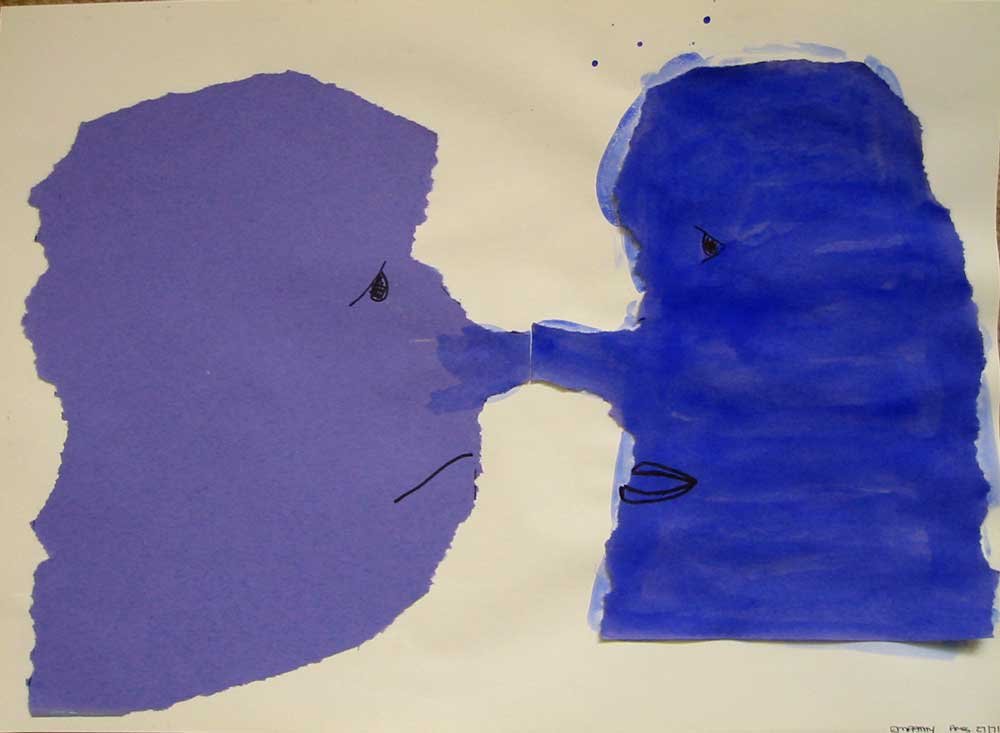(I had another post queued up for today, and right at the almost-literal 11th hour, I decided there was something else I wanted to say. So I pushed that one off for another time.)
Today is Thanksgiving in the U.S. For me, Thanksgiving has long been about gratitude, a complex and adult emotion that is not innate to any of us, I don’t think. Rather it is a skill that is learned. (I believe there are at heart two ways to train yourself to be grateful.)
But right now, something else feels even more important than gratitude.
Table of Contents
Bigger than climate change?
If I could sum up what I believe is one of the biggest overarching problems that we face as a people, it’s not things like climate change or food insecurity or social injustice or the lack of a proper social safety net. Those things are all very real, but I think there’s something that subsumes them all.
It’s a global lack of empathy.
I’ve talked about empathy before. Empathy is the emotion that allows us to connect with other human beings. It allows us to understand, if not the specifics, the underlying feelings of another person.
And it is deeply in short supply right now. And for this, everyone is guilty, myself included.
The others
I hear it everywhere in our public discourse. Everyone is talking about “others” as if they are unreasonable or worse. And I mean this regardless of where you might stand on any political line.
Painting with a broad brush and accusing whole groups of people as being “idiots”, “racists”, “criminals”, or whatever you might feel totally justified in accusing, might make you feel better in the moment as a kind of catharsis, but there are two problems. Number one is that you’re probably wrong; number two is that it closes down your mind to true understanding.
- Think people on public assistance are just mooching off of the system? Who have you talked to personally who was doing this? Do you think that’s the rule and not the exception?
- Think anyone who voted for our current president-elect is a racist/misogynist? Might there be another explanation, one less couched in vitriol, and instead with a more reasonable inclination? Can you see past your own defensiveness? Can you see past theirs?
- Think everyone who’s not originally from this country is a criminal? Think they should just go home? Have you in fact talked to anyone who is newly here? Do you perhaps feel threatened? And if so, by what exactly?
(I am not excusing myself here either. I know that when I see what I feel is injustice on a mass scale, my gut is to retreat into generalizations. “How could they do this?” “Don’t they see??“)
The ones I know aren’t like that
What’s interesting are the exceptions. When pressed, it is often the people one knows who are the exception. “Oh he’s not like all those others.”
In Bill Bryson’s book “The Road To Little Dribbling”, he recounts a discussion with a friend of his who wanted to end immigration:
“I’m an immigrant,” I pointed out.
He nodded grimly. “You can stay,” he allowed at last, “but you must understand you are permanently on probation.” I assured him that I never considered myself anything else.
What can we make of this “personal exception”? To me, it’s that it is natural to not have empathy for those you don’t know personally. Those people out there? Screw ’em. But I would never say that to the people I know. They’re different.
The thing is: they’re not different. Everyone is worthy of your consideration on a human level. No really, I mean everyone. Even those with whom you vehemently disagree with, even those who you’ve never met yet, even those who might wish you harm, they are all equally worthy.
This is incredibly hard to do.
It is also more important than ever now.
Let’s listen first, talk second
Empathy forces a more reasonable interaction. Arguably, it forces plain old interaction. You can’t just dismiss anyone when you feel empathy.
But why bother? Why go to the trouble to work to gain a sense of empathy for others?
When you can see the humanity in others, when you believe that people are just making decisions based on the best information that they have at the time, and that if there is malice involved that it is because of some underlying hurt, it is easier to come to better agreements and understandings.
Who knows? Maybe with greater empathy we could come up with reasonable solutions to the seemingly-intractable problems facing us today. I say it’s worth a shot.
If nothing else, getting in touch with my own sense of empathy towards other feels better than the alternative. There’s a kind of psychic loneliness involved in an empathy-free existence. As much as it might feel good to dismiss others, understanding and feeling a kinship feels much better. It’s not unlike feeling like the world is going to end and reading report after report about just how things are falling apart. It feels validating, but there’s also a cost.
So this season, as we may be spending time with people both very like and/or very not like us, I urge you to contemplate your default reactions to others. And then ask yourself, “how can I find the humanity in this person?”
Try it with the people you know, and then move on to the people you don’t. Happy holidays.

